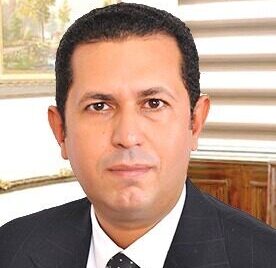At this time when the world is suffering from the economic repercussions of the coronavirus crisis and the Ukrainian-Russian war, Egypt’s foreign diplomacy has taken a different, non-traditional eastward direction.
President Abdel Fattah’s recent Asian tour has come at an important time. This step should be called “development diplomacy” to open new tourism markets and investment opportunities for Egypt. It also reflects Egypt’s willingness to benefit from the experiences of economically emerging countries in Asia.
President Sisi tour to India, Armenia and Azerbaijan was intended to strengthen Egypt’s presence in two regions that are now the centre of world attention: the Caucasus and central and south Asia.
At the start of 2023, Egypt’s foreign policy shifted from the traditional foreign markets to new ones to explore fresh investment opportunities amid the current global economic changes and the international food crisis.
India, the world’s fifth-largest economy by nominal GDP, was President Sisi’s first stop. Cairo and New Delhi agreed to consolidate their co-operation in the trade of strategic commodities and those required for food security to help both countries contain the repercussions of the global food crisis. They also agreed to exchange expertise and co-operate in projects related to food and agriculture, energy, infrastructure and defence industries. President Sisi also invited the Indian business community to explore emerging economic and investment opportunities in Egypt in the chemicals, energy, automobile, retail, education, health and agriculture sectors.
Egypt’s leadership gives priority to development diplomacy, indicating that Egyptian foreign policy, besides its traditional mission, serving the development process based on attracting investment into Egypt. We can say that accelerating development is one of the motives behind the moves of Egypt’s foreign diplomacy.
Anti-terrorism efforts were part of many important topics discussed during President Sisi’s Asian tour since terrorism constitutes a real threat to development in the region and the world.
In Baku, the talks between President Sisi and President of Azerbaijan Ilham Aliyev covered the fight against terrorism at regional and international levels.
El Sisi stressed the need for concerted efforts by the international community to eliminate this scourge at all levels, particularly financing terrorist groups and providing them with weapons.
The discussions between both presidents also highlighted the importance for benefiting from Egypt’s experience in fighting terrorism by tackling the root causes of the problem, which involves supporting economic, social development and combating extremist ideology.
Since the end of the 44-day war between Azerbaijan and Armenia in 2020, Azerbaijan has been working to rebuild the territories that returned to its control and presenting giant development projects. This is a promising opportunity for Egyptian companies to enter into partnerships with Azerbaijani firms. After Azerbaijan, President Sisi was in Armenia, reflecting that Egypt stands on the same fence. This shows the respect of Egyptian diplomacy which is based on balance and neutrality. El Sisi’s visit to Baku and Yerevan shows that Egypt shares the same stance with both countries that have long histories of dispute.
President Sisi and the Armenian president witnessed the signing of a series of agreements and MoUs to promote co-operation in the domains of technology, science and investment.
A report by Egypt’s Supreme Council for Media showed that President Sisi’s Asian tour included 8 summit meetings, four press conferences, and the signing of 11MoUs with India, Azerbaijan and Armenia in different fields.
Development diplomacy is aimed at strengthening Egypt’s economic ties with Asian countries to benefit from the success of their economic growth programmes. Cairo is also looking at Asia as a promising market for the use of natural resources in Africa. Egypt can build economic partnership between the countries of the two continents through establishing joint projects for exploring natural resources in Africa.
Mohamed Fahmy is the editor-in-chief
of The Egyptian Gazette and
the Egyptian Mail newspapers






Discussion about this post